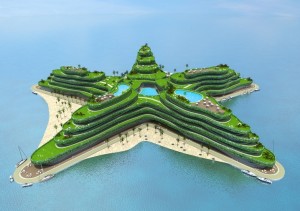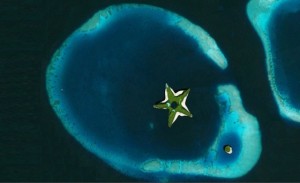As attempts to turn the tide of global warming begin to stall, is it a case of sink or swim for this private island paradise?
What with continuing political turmoil, a significant drop in visitor numbers and the ever-looming sceptre of climate change, 2012 was without a doubt a challenging year for the Maldives. Whilst travel experts remain optimistic of a boost to tourism figures (thanks in part to a recent pledge of commitment from a certain Mr David Beckham), it seems too late to turn the tide of global warming.
Already particularly vulnerable to climate change due to its remote setting and its delicate eco-system, the effects of global warming have made this tiny Indian Ocean island republic a big player when it comes to environmental issues. Famed as the world’s most low-lying location and with an average elevation of only 1.5 metres above sea level, it is feared that rising sea levels could ultimately spell the demise of this popular island holiday destination.
Whilst some look towards former-President and cause celebre Mohamed Nasheed’s bold attempts to halt the process of global warming as a long-term solution to the Maldives’ environmental problems, others are looking towards an altogether different future for the Maldives. Paul van de Camp of Dutch Docklands International is one such person. A firm believer in the motto “where there is nothing anything is possible”, van de Camp has used his many years’ experience of fighting rising tides in Holland to create a solution unlike any other… the construction of a series of floating islands!
With plans already approved and development due to begin later this year, could a floating island resort really be the solution to the Maldives’ environmental problems? Aimed to make a positive impression on guests both in terms of its unique appearance and its commitment to ecological issues, the designs for phase one of the project certainly seem to have the best interests of this paradisiacal island republic at heart. With everything from renewable energy and carbon neutrality being promised, it seems that no stone has been left unturned as far as this project is concerned.
However, despite van de Camp’s assurances that his various floating resorts will turn the Maldives “from climate refugees to climate innovators”, it’s fair to say that many sceptics still harbour doubts the sustainability of artificial islands. One only has to look towards the now infamous “Dubai World Island” development to see the damage such an outlandishly ambitious scheme is capable of. Designed to put the extravagant Arab metropolis well and truly on the map, this man-made archipelago now faces financial and physical ruin as the 300 islands slowly begin to erode, turning once crystalline waters to silt and further disrupting an already fragile eco-system.
It goes without saying that developers are keen to avoid a repetition of this unfortunate situation, with steps already being taken to prevent a further burden on the Maldivian marine life. Whereas the Dubai World Island project was created by dredging sand from the shallow waters of the Persian Gulf, Dutch Docklands International is expected to create its floating resorts using considerably more progressive technology and with construction taking place far away from the resorts’ intended destinations, increasing long-term stability whilst at the same time significantly minimizing the environmental cost to the Maldives.
The project certainly seems to be generating a buzz, with our man in the Maldives, travel expert Mohamed Shifaaq, describing the Floating Island Resort as having the potential to become the region’s biggest ever attraction. Going on to declare the project as “the best thing that could ever happen to an island nation like the Maldives,” it would be easy to dismiss these sentiments as nothing but a product of hype. However, upon casting an eye over the blueprints for this daring venture, it soon becomes apparent why those in the know are getting quite so excited about this project.
With initial plans including the 43 island-strong Amillarah archipelago, an oceanfront development in the form of a Maldivian flower and the creation of the world’s first floating golf course, the Royal Indian Ocean Club, there are plenty of reasons to look forward to the realization of this project. With construction currently ahead of schedule, there are even whisperings that The Royal Indian Ocean Club and its rumoured underwater clubhouse could even be ready to open its doors to visitors by the end of the 2013. As long as the project retains its environmental credentials it’s safe to say the Floating Island Resorts will have a positive impact on the Maldives indeed. We’ll be sure to keep you posted with any further developments as soon as they come to us.
Read more: www.minivannews.com




